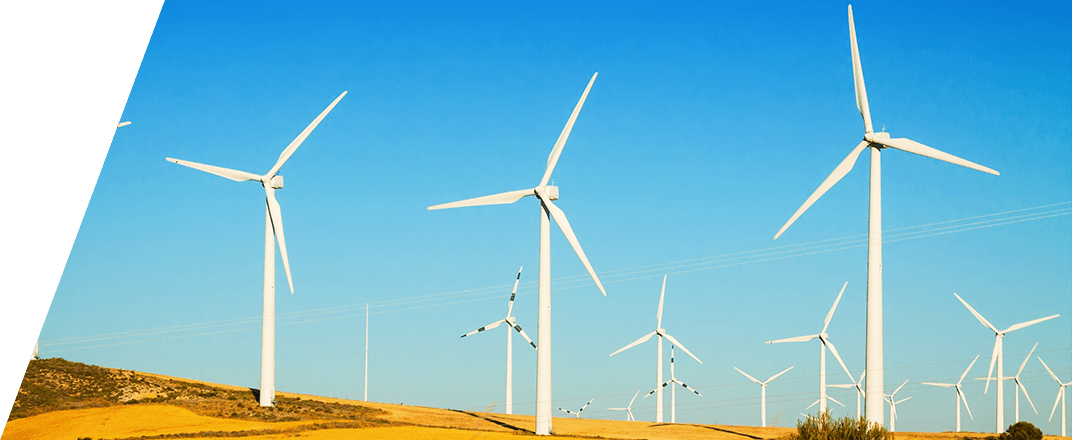Mechanical Engineering


Mechanical Engineering


A student who has passed Bachelor's Degree or equivalent (level 6.0). Obtained at least 50% marks (45% marks in case of candidates belonging to reserved category) in the qualifying examination shall be eligible for admission to M.Tech. programmes of 2-year duration.
However, students who have not studied respective courses from the discipline will have to undertake the prescribed bridge course(s).
Welcome to the vibrant realm of Mechanical Engineering at JAIN (Deemed-to-be University), where the fusion of innovation and excellence takes centre stage. Our Department of Mechanical Engineering shines as a guiding light for cutting-edge education, groundbreaking research, and seamless industry collaboration. Energy and Environmental Management is an advanced post-graduate program designed to equip students with the knowledge and skills required to address the pressing global challenges related to energy, sustainability, and environmental management. This program focuses on the development and management of sustainable energy systems including renewable energy technologies, energy efficiency, environmental impact assessment, energy policy and regulation, project management, and economic aspects of energy systems. Energy and Environmental Management have gained significant importance in recent years due to the urgent need to transition to cleaner, more efficient, and environmentally responsible energy sources. This M.Tech program from the best college in Bangalore is tailored to meet the growing demand for professionals who can contribute to the development and management of sustainable energy solutions, both in the public and private sectors.
M. Tech. Energy and Environmental Engineering is an interdisciplinary program connecting the broad areas of Energy and Environment. The program aims to prepare future decision-makers in companies, government, and non-governmental organizations to analyze and act in an environmentally proactive way while making decisions about policy, production, and resource utilization. Further, it trains aspirants to meet the emerging challenges with sustainable technological solutions such that the graduates can develop innovative and creative solutions to various energy and environmental problems. The program aims to develop abilities in the effective and efficient management of energy resources and managing companies following the stringent ever-updating environment standards.
Graduates of this program are eligible to apply for the position of Environmental Engineers at State and Central Government pollution control boards upon qualifying UPSC examinations. Other than the Government sector, successful graduates can apply for vacancies in several prestigious private firms like:
2 Years
|
Course name |
Course Type |
|
Foundation of Energy Engineering |
PCC |
|
Energy Study with Community Engagement |
PCC |
|
Energy Conservation and Management |
PCC |
|
Fluid Mechanics and Heat Transfer Lab |
PCC |
|
Energy Conversion Lab |
PCC |
|
Discipline Specific Elective - 1 |
DSE |
|
Discipline Specific Elective - 1 |
DSE |
|
Open Elective - 1 |
OEC |
|
PCL I - Research and Entrepreneurship Project |
PCL |
|
Course name |
Course Type |
|
Design of Water and Wastewater Treatment Systems |
PCC |
|
Photovoltaic & Solar Thermal Energy |
PCC |
|
Energy Management in Buildings |
PCC |
|
Solar and wind energy Lab |
PCC |
|
Water treatment Lab |
PCC |
|
Discipline Specific Elective –3 |
DSE |
|
Discipline Specific Elective –4 |
DSE |
|
Open Elective - 2 |
OEC |
|
PCL II - Research and Entrepreneurship Project |
PCL |
|
Course Name |
Course Type |
|
Discipline Specific Elective –5 (Hybrid Mode) |
DSE |
|
Discipline Specific Elective –6 (Hybrid Mode) |
DSE |
|
Open Elective – 3 (Hybrid Mode) |
OEC |
|
Dissertation Phase – I |
Project |
|
PCL III - Research and Entrepreneurship Project |
PCL |
|
Internship |
Internship |
|
Course Name |
Course Type |
|
Dissertation Phase – II |
Project |
|
PCL IV - Research and Entrepreneurship Project |
PCL |
|
Elective-I |
Elective-II |
||
|
1stSemester |
1st Semester |
||
|
24MTEEM111 |
Wind energy conversion technology |
24MTEEM121 |
Waste-to-energy conversion techniques |
|
24MTEEM112 |
Alternative fuels and emissions |
24MTEEM122 |
Environmental impact analysis |
|
24MTEEM113 |
Energy scenario and energy policy |
24MTEEM123 |
Environment laws, standards & certifications |
|
|
|||
|
Elective-III |
Elective-IV |
||
|
2nd Semester |
2nd Semester |
||
|
24MTEEM211 |
Energy storage devices |
24MTEEM221 |
Nuclear engineering |
|
24MTEEM212 |
Ecology and ecosystem dynamics |
24MTEEM222 |
Climate change understanding observations |
|
24MTEEM213 |
Sustainable energy policy and planning |
24MTEEM223 |
Technology, environment, and society |
|
|
|||
|
Elective-III |
Elective-IV |
||
|
3rd Semester |
3rd Semester |
||
|
24MTEEM311 |
Hydrogen and fuel cell technologies |
24MTEEM321 |
Electronics for renewable energy systems |
|
24MTEEM312 |
Industrial waste management and recycling |
24MTEEM322 |
Occupational health and Industrial safety |
|
24MTEEM313 |
Climate change: science, policy and political economy |
24MTEEM323 |
Energy Systems Modelling and Analysis |
Job roles of sustainable/renewable energy engineers
This education from one of the top colleges in Bangalore, JAIN (Deemed-to-be University) helps you with the best career outcomes. Ultimately, the best further study option for you will depend on your career objectives, interests, and personal circumstances. It's important to carefully consider your options and choose a path that aligns with your goals and aspirations in the field of energy and environmental management
After completing a Master of Technology in Energy & Environmental Management, there are several further study options you could consider depending on your career goals and interests: